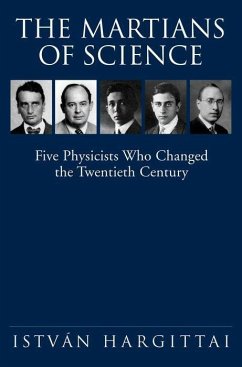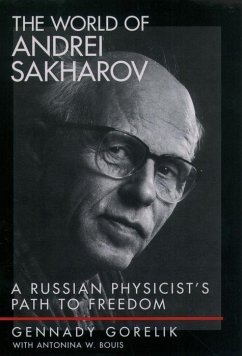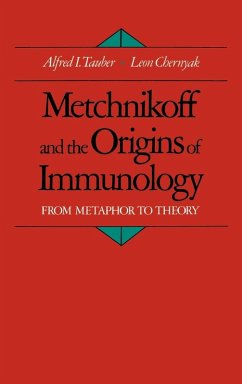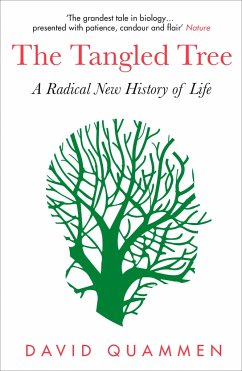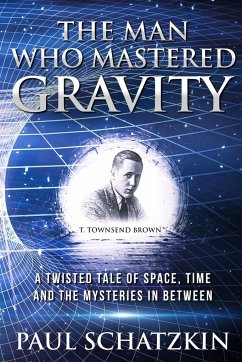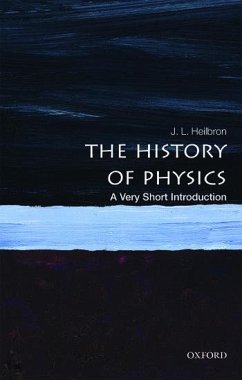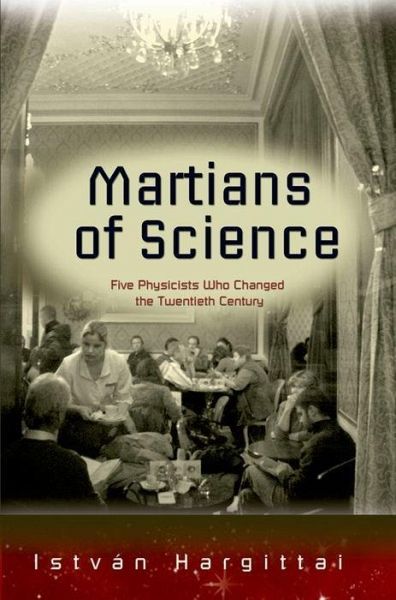
The Martians of Science
Five Physicists Who Changed the Twentieth Century
Versandkostenfrei!
Versandfertig in 1-2 Wochen
33,99 €
inkl. MwSt.
Weitere Ausgaben:

PAYBACK Punkte
17 °P sammeln!
If science has the equivalent of a Bloomsbury group, it is the five men born at the turn of the 20th century in the same neighborhood in Budapest: Theodore von Karman, Leo Szilard, Eugene Wigner, John von Neumann, and Edward Teller. Through immigration from Hungary to Germany to the United States, they remained friends and continued to work together and influence each other throughout their lives. As a result, their work was integral to some of the most important scientific and political developments of the 20th century. They were an extraordinary group of talents: Wigner won a Nobel Prize in theoretical physics without ever having taken a formal college-level physics course, Szilard was the first to see that a chain reaction based on neutrons was possible but left physics to try to restrict nuclear arms, von Neumann could solve problems in his head for which most people needed computers, von Karman became the first director of NASA's Jet Propulsion Lab, and Teller was the father of the hydrogen bomb, whose name is now synonymous with the controversial "Star Wars" defense initiative of the 1980s. Each was fiercely opinionated and politically active, reactionaries against the fascism and anti-Semitism with which they had grown up. Istvan Hargittai, as a young Hungarian physicist, was able to get to know these great men in their later years, and the depth of information and human interest in this book is the result of his personal relationships with the subjects, their families and their contemporaries.
The Martians of Science is the engaging story of five little-known Hungarian physicists who transformed 20th century science. They emigrated to the United States from Hungary in the 1930's and were important contributors to experiments such as the Manhattan Project. Variously recognized with the National Medal for Science, the Presidential Medal of Freedom and the Nobel Prize for physics, these five remained close friends throughout their lives. Through decades ofpolitical and social upheaval, they held onto their Hungarian identities and were fiercely opinionated and politically active reactionaries against the fascism and anti-Semitism with which they had grown up. Based on the author's personal relationships with the subjects and many interviews with theircontemporaries, The Martians of Science is an exhaustively researched, fascinating story of an important era in history: the history of the Cold War, political history, American history, Hungarian history, and scientific history.




